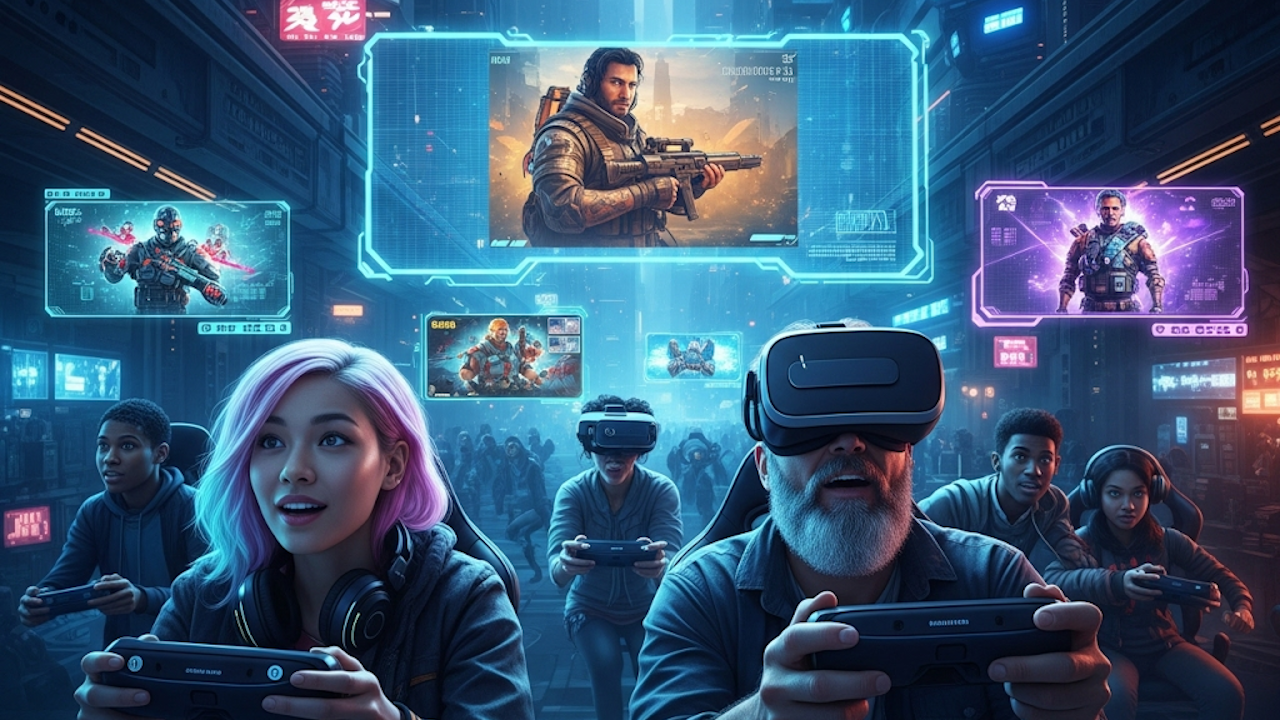The video gaming landscape is in constant flux, a dynamic environment where trends emerge, flourish and eventually cede ground to new innovations. For the past several years, the battle royale genre has reigned supreme, captivating millions with its last-player-standing format. However, as the market matures and player preferences evolve, the industry is already looking ahead to “What’s Next In Video Gaming After Battle Royale?” While battle royale titles like Fortnite and Apex Legends continue to maintain significant player bases, the era of new contenders consistently breaking through appears to be waning. This suggests a shift in focus for developers and players alike.
One of the most prominent emerging trends is the rise of extraction shooters. Games like Escape From Tarkov and Hunt: Showdown have carved out a niche by blending elements of survival games, looter shooters, and player versus environment versus player (PvPvE) combat. Unlike the singular win condition of battle royale, extraction shooters often offer multiple objectives and a strong emphasis on risk versus reward. Players typically enter a map with limited gear, scavenge for valuable loot, and then attempt to extract safely, often while contending with both AI enemies and other human players. This genre provides a deeper sense of progression and a more persistent world than the ephemeral matches of battle royale, appealing to players who seek more meaningful long term engagement.
Beyond specific genres, several broader trends are shaping the future of video gaming. Artificial intelligence (AI) is rapidly transforming game development, leading to more dynamic and adaptive gameplay experiences. AI powered systems can generate expansive game worlds, craft evolving narratives, and tailor difficulty in real time to suit individual player skill levels. This promises highly personalized and replayable content, moving away from static, pre-scripted experiences. The integration of AI also streamlines development workflows, automating tasks like asset generation and bug detection.
Cloud gaming is another significant disruptor. By allowing players to stream games directly from the cloud to various devices, it bypasses the need for expensive consoles or high-spec PCs. This lowers the barrier to entry for many, making gaming more accessible and fostering cross-platform multiplayer experiences. As internet infrastructure continues to improve globally, cloud gaming’s influence is expected to grow, enabling more flexible and on the go play sessions.
Furthermore, the concept of social gaming within the metaverse era is gaining traction. While the full realization of a persistent, interconnected metaverse is still some way off, games are increasingly incorporating social hubs and user generated content tools that blur the lines between gaming and social media. These spaces empower players to be co creators, designing avatars, virtual homes, and even entire game worlds. This fosters a sense of community and shared experience that extends beyond competitive matches.
The industry is also witnessing a resurgence in single player games and a continued strong performance from established genres like Soulslikes and roguelites/roguelikes. While not “new” in the strictest sense, these genres continue to innovate within their established frameworks, offering challenging combat, intricate world design, and compelling narratives. The success of games like Baldur’s Gate 3 highlights a renewed appetite for rich, narrative driven single player experiences.
Finally, the business model of free to play games with battle passes and in game purchases is likely to endure, even as the dominant genres shift. This monetization strategy has proven incredibly successful in attracting large player bases and generating revenue, and developers will continue to adapt it to new game formats.
In conclusion, while the battle royale genre has left an indelible mark on gaming, its reign as the absolute frontier appears to be evolving. The future of video gaming will likely be characterized by a diverse ecosystem of genres, with extraction shooters leading the charge among multiplayer experiences. Coupled with advancements in AI, the increasing accessibility of cloud gaming, and a continued emphasis on social and user driven content, the post battle royale era promises a rich and varied landscape for players.

